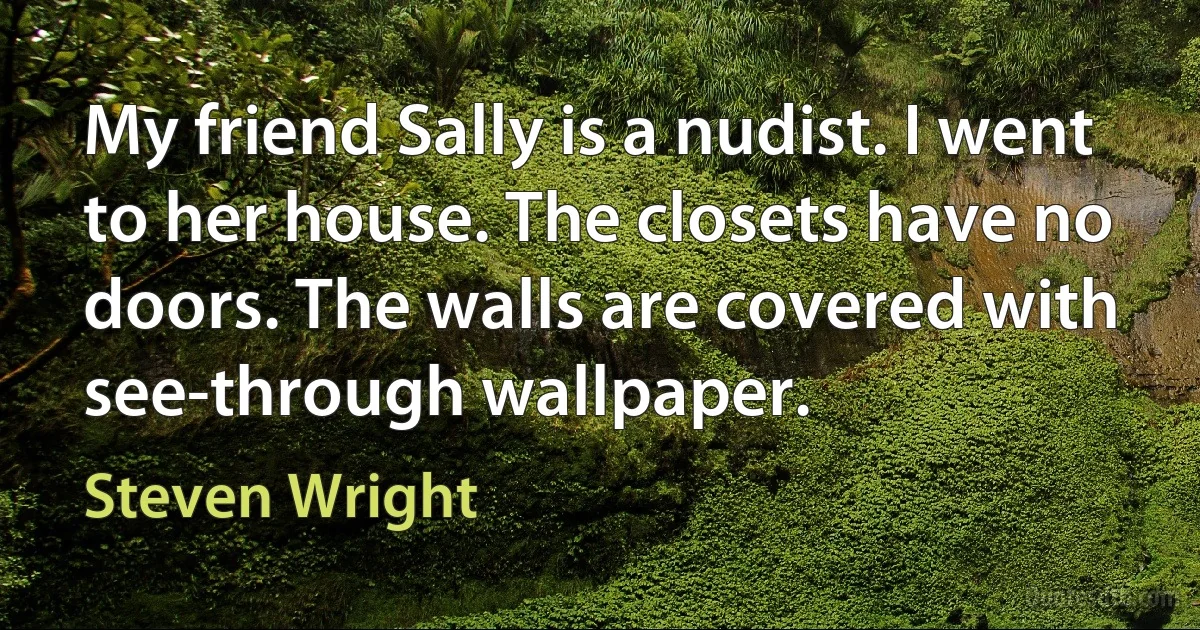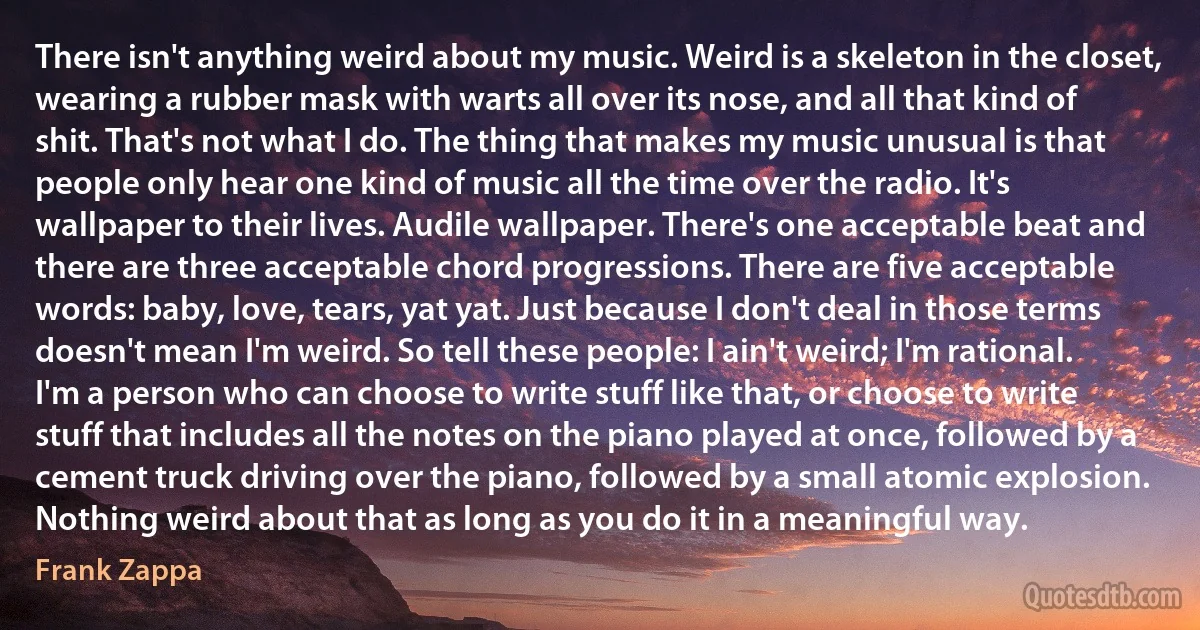Wallpaper Quotes - page 2
Picture a place called the Karma Kafe and it'll save me the bother of describing it. There was nothing in it you wouldn't expect, from the Buddha flowerpots to the wallpaper decorated with symbols that probably said, "If you bought this just because it looked pretty, may Buddha piss in your coffee, you culturally ignorant moron.

Kelley Armstrong
I feel like the script to Nightmare 4 is so tender hearted and thought out. I completely related to that character. That's me in grade school, junior high, etc. Daydreamer, all I did was read books all summer long, looking out the window at the cute guy playing soccer in the backyard. Literally I was Alice. That was my life, so I completely related to the character and I think a lot of us can relate to the character at times in our life when we just want to be part of the wall. We just want to be wallpaper and not bring attention to ourselves and disappear into fantasy worlds. I believe a lot of people, at least a lot of people have told me that they really related to that character. But at one point in life, you have to make a decision to stand up for yourself and stand up for those that you love.

Lisa Wilcox
Tolerance? What does that mean? I am a very tolerant and hospitable person, like you. Would you accept 12 illegal immigrants moving into your flat? You would not! On top of that, they start to remove the wallpaper! Some of them would steal your wallet and brutalise your wife. You would not accept that! Consequently, we are hospitable, but we decide with whom we want to be.

Marine Le Pen
The wallpaper with which the men of science have covered the world of reality is falling to tatters. The grand whorehouse which they have made of life requires no decoration; it is essential that only the drains function adequately. Beauty, that feline beauty that has us by the balls in America, is finished.

Henry Miller
I think that for me any picture that works even if it is in the guise of pure color application, if it works, involved drawing. That is falt space on a flat surface. And for me, and I always say this, whether it's a Titian or a [Kenneth] Noland, the ones that come off work in that depth and the color perhaps it is divine and the thing that makes it work, but it is line color. If it doesn't work then it's decorative or dead or just applied colors on a surface. That's what wallpaper is. And that's the difference between the striped wallpaper and a great Noland.

Helen Frankenthaler
We need less posturing and more genuine charisma. Charisma was originally a religious term, meaning of the spirit or inspired. It's about letting God's light shine through us. It's about a sparkle in people that money can't buy. It's an invisible energy with visible effects. To let go, to just love, is not to fade into the wallpaper. Quite the contrary, it's when we truly become bright. We're letting our own light shine.

Marianne Williamson
Urs Fischer specializes in making jaws drop. Cutting giant holes in gallery walls, digging a crater in Gavin Brown's gallery floor in 2007, creating amazing hyperrealist wallpaper for a group show at Tony Shafrazi: It all percolates with uncanny destructiveness, operatic uncontrollability, and barbaric sculptural power.

Jerry Saltz
The difference in structure is of the same kind as that between an ordinary wallpaper in which the same pattern is repeated again and again in regular periodicity and a masterpiece of embroidery, say a Raphael tapestry, which shows no dull repetition, but an elaborate, coherent, meaningful design traced by the great master.

Erwin Schrödinger
The tension between socially acceptable housewifery and creative ambition is certainly easy to find in Jackson's life, but it's rather harder to locate in her fiction. There's no question that, in her books, the house is a deeply ambiguous symbol-a place of warmth and security and also one of imprisonment and catastrophe. But the evil that lurks in Jackson's fair-seeming homes is not housework; it's other people-husbands, neighbors, mothers, hellbent on squashing and consuming those they profess to care for. And what keeps women inside these ghastly places is not societal pressure, or a patriarchal jailer, but the demon in their own minds. In this sense, Jackson's work is less an anticipation of second-wave feminism than a conversation with her female forebears in the gothic tradition. Her stories take the figure of the imprisoned "madwoman," as found in Charlotte Perkins Gilman's "The Yellow Wallpaper" or Charlotte Brontë's Jane Eyre, and make her the warder of her own jail.

Shirley Jackson
The new thing, a great banality in white, off-white and poor-white, leaned up against the wall. "Interesting,” we said. "It's poor,” Snow White said. "Poor, poor.” "Yes,” Paul said,” one of my poorer things I think.” "Not so poor of course as yesterday's, poorer on the other hand than some,” she said. "Yes,” Paul said, "it has some of the qualities of poorness.” "Especially poor in the lower left-hand corner,” she said. "Yes,” Paul said, "I would go so far as to hurl it into the marketplace.” "They're getting poorer,” she said. "Poorer and poorer,” Paul said with satisfaction, "descending to unexplored depths of poorness where no human intelligence has ever been.” ... "Sublimely poor,” she murmured. "Wallpaper,” he said.

Donald Barthelme



